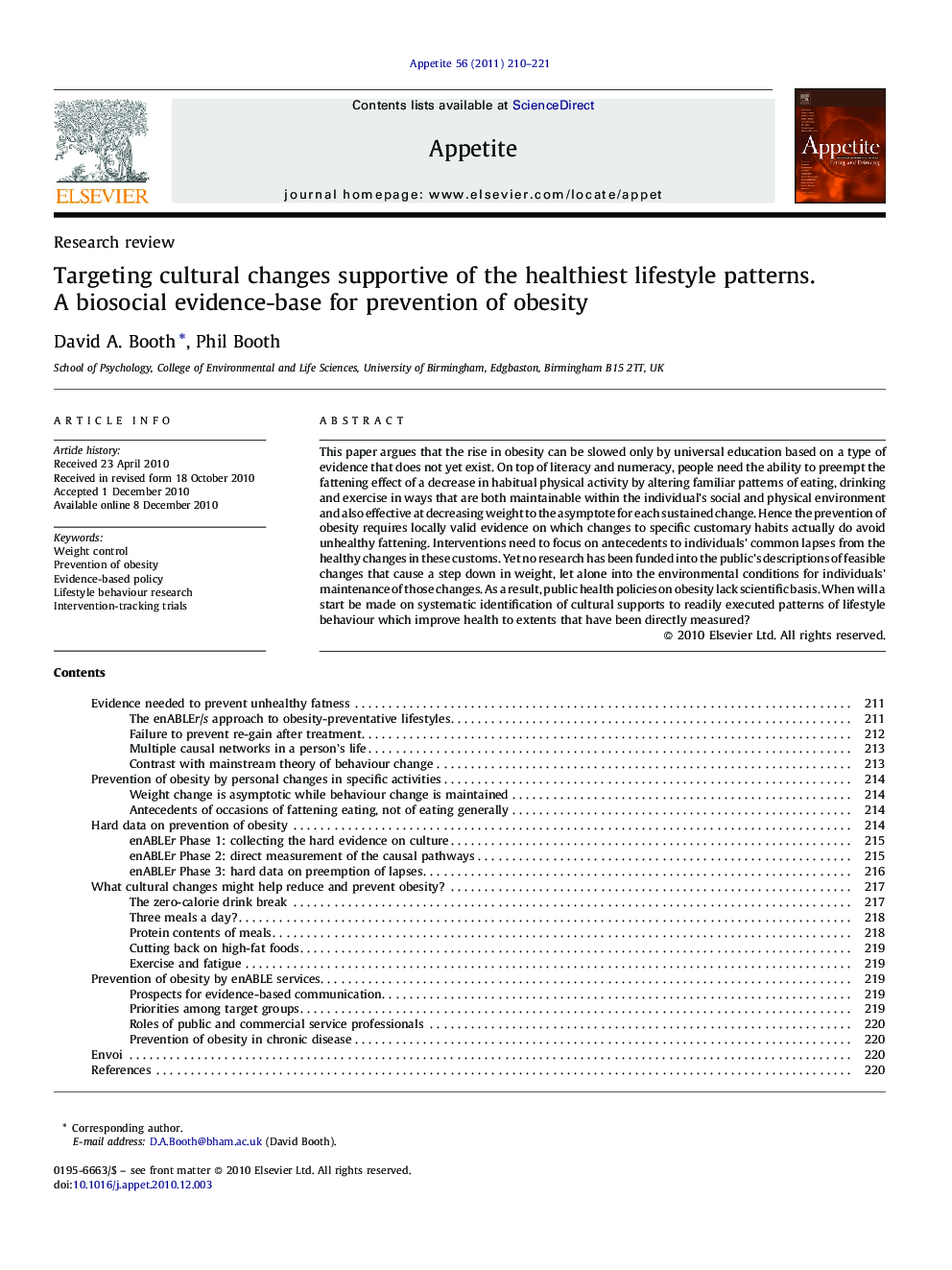| Article ID | Journal | Published Year | Pages | File Type |
|---|---|---|---|---|
| 10462611 | Appetite | 2011 | 12 Pages |
Abstract
This paper argues that the rise in obesity can be slowed only by universal education based on a type of evidence that does not yet exist. On top of literacy and numeracy, people need the ability to preempt the fattening effect of a decrease in habitual physical activity by altering familiar patterns of eating, drinking and exercise in ways that are both maintainable within the individual's social and physical environment and also effective at decreasing weight to the asymptote for each sustained change. Hence the prevention of obesity requires locally valid evidence on which changes to specific customary habits actually do avoid unhealthy fattening. Interventions need to focus on antecedents to individuals' common lapses from the healthy changes in these customs. Yet no research has been funded into the public's descriptions of feasible changes that cause a step down in weight, let alone into the environmental conditions for individuals' maintenance of those changes. As a result, public health policies on obesity lack scientific basis. When will a start be made on systematic identification of cultural supports to readily executed patterns of lifestyle behaviour which improve health to extents that have been directly measured?
Keywords
Related Topics
Life Sciences
Agricultural and Biological Sciences
Food Science
Authors
David A. Booth, Phil Booth,
